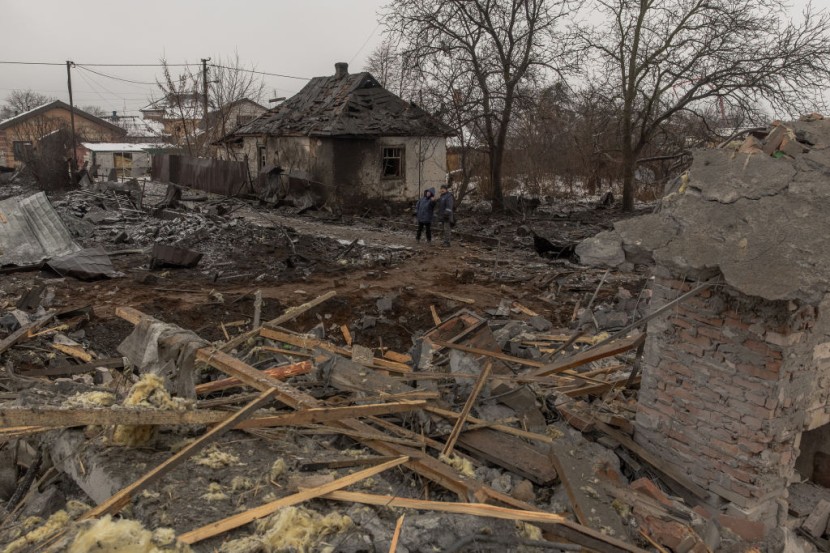At least 50 people were wounded after a barrage of missiles struck Kyiv overnight (December 12-13), the second strike on the Ukrainian capital this week.
According to Kyiv mayor Vitali Klitschko, six of those wounded were children after a kindergarten and hospital buildings were reportedly damaged by debris as at least 10 Russian ballistic missiles had been shot down.
The Kremlin started using cruise missiles last week after 79 days of resorting to other means, including attack drones.
The attacks happened while Ukrainian President Volodymyr Zelensky was on a winter tour to Washington, Oslo, and Brussels.
"Russia has proven once again that it is a heinous country that fires missiles at night, trying to hit residential areas, kindergartens, and energy facilities during the winter," he posted on X, the social media platform formerly known as Twitter.
Ukrainian military officials have identified the projectiles as Iskander-M ballistic missiles and S-400s - fast missiles intended for air defense but could also be used to hit ground targets.

Other Attacks
Meanwhile, the regional military commander of the port city of Odessa was also attacked for "several hours" by drones overnight.
Two men were reportedly injured and several civil infrastructures were damaged.
On the other hand, threat intelligence provider Cyjax told Sky News that Russia might switch the focus of its cyberattacks to Ukraine's Western allies in a bid to undermine their support for the country's war effort.
Cyjax cyberintelligence lead Roman Faithful warned that Western support helped "stagnate" the attacks on Ukrainian cyberinfrastructure, which meant the Kremlin could turn towards attacking weaker Western infrastructures.
"Businesses and cybersecurity experts should be on their guard for any irregular activity and bolster their defenses across the cyber and information space," he added.
More Aid for Ukraine
The BBC reported that Zelensky's plea for the US Congress to agree to more military aid for his country made little progress in winning over reluctant Republicans, especially in the GOP-controlled House of Representatives.
Leaders of the European Union would also discuss further aid for Ukraine on Thursday (December 14), with European Commission President Ursula von der Leyen insisting that the bloc "must give Ukraine what it needs to be strong today."
Zelensky vs. Orban on Ukraine's EU Membership
On the other hand, Hungarian Prime Minister Viktor Orban has renewed his opposition to Ukraine's accession to the EU.
"The EU is preparing to make a terrible mistake and we must prevent that even if 26 (members) want to make the mistake," he told local news site Mandiner. "If we want to give support to Ukraine, a geostrategic signal, then we should, but this is not membership."
Hungary has been at odds for a long time with its EU partners over Russia's full-scale invasion of Ukraine, including watering down sanctions against Russia and vetoing a €18 billion ($19.4 billion) 2023 deal grant last year.
The EU's executive was expected to unblock €10 billion ($10.8 billion) in funding for Hungary on Wednesday (December 13), in a move criticized as an attempt to persuade Orban to loosen his objections to helping Ukraine.
"Ukraine is not only fighting against the invader, but for Europe, and joining our family will be Ukraine's ultimate victory. And for this, we have a decisive role to play," von der Leyen told the European Parliament.
However, Orban told colleagues in Budapest's parliament on Wednesday that the idea of Ukraine joining the EU was in stark contrast to Hungary's national interest.
© 2025 HNGN, All rights reserved. Do not reproduce without permission.








